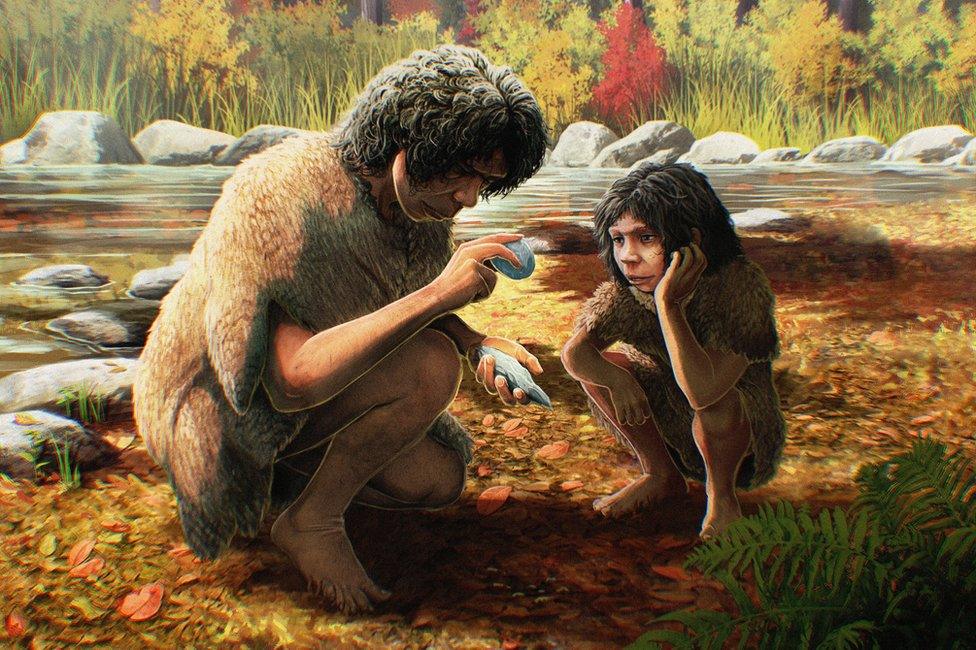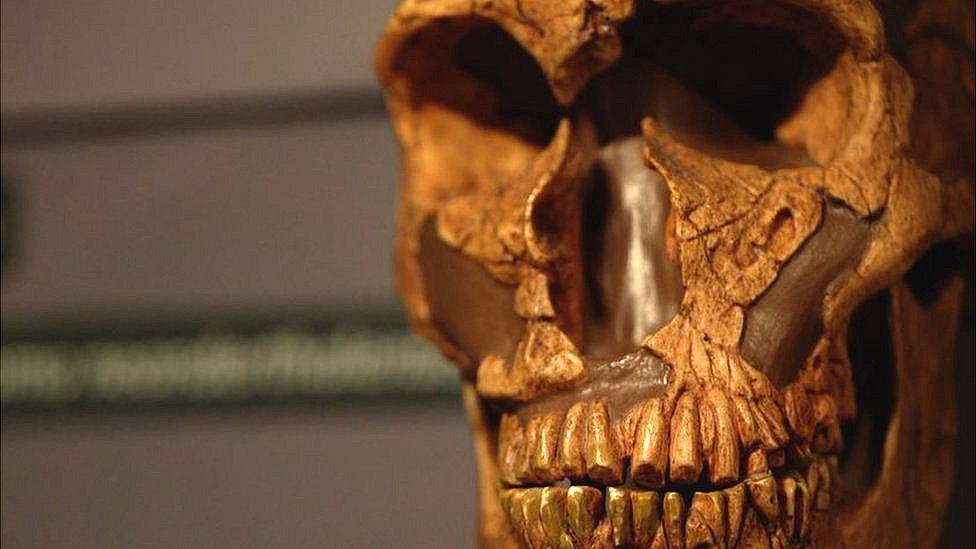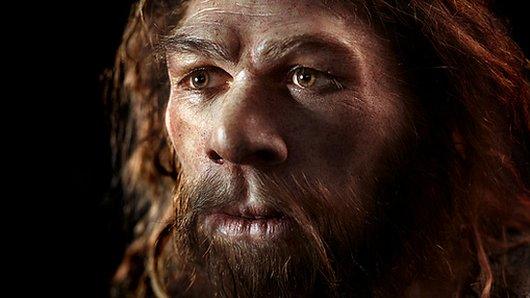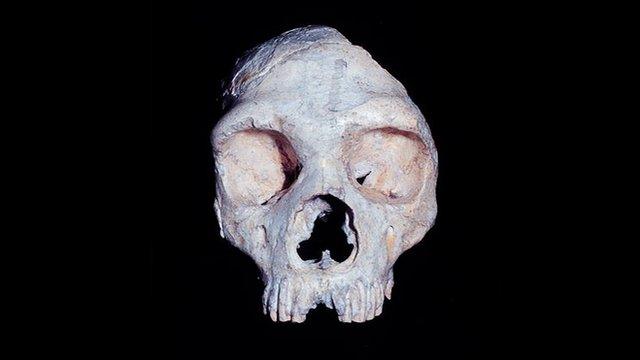Canterbury area was home to Neanderthal ancestors study suggests
- Published

Archaeologists say east Kent was home to some of the first humans to inhabit Britain
Kent was home to some of Britain's earliest humans, according to the latest research.
Homo heidelbergensis, an ancestor of Neanderthals, occupied the area around what is now Canterbury between 560,000 and 620,000 years ago.
Finds made on the outskirts of the city also hint at some of the earliest animal hide processing in European prehistory.
Archaeologists first excavated the site at Fordwich in the 1920s.
Located in an ancient riverbed, the site was originally discovered when local labourers unearthed artefacts known as hand axes, which are now in the British Museum.
By applying modern dating techniques to new excavations their age has finally been determined.
This makes it one of the earliest known Palaeolithic sites in northern Europe.
Early humans are known to have been present in Britain from as early as 840,000, and potentially 950,000 years ago, but the early visits were fleeting, the study suggests.
Dr Alastair Key, from the University of Cambridge, who directed the excavation, said: "The diversity of tools is fantastic.
"In the 1920s, the site produced some of the earliest hand axes ever discovered in Britain.
"Now, for the first time, we have found rare evidence of scraping and piercing implements at this very early age."
Dr Tomos Proffitt, from the Max Planck Institute of Evolutionary Anthropology, who analysed the artefacts, said: "Finding these may therefore suggest that people during this time were preparing animal hides, possibly for clothing or shelters.
"The range of stone tools, not only from the original finds, but also from our new smaller excavations, suggest that hominins living in what was to become Britain, were thriving and not just surviving."
The findings are published in the Royal Society Open Science journal.

Follow BBC South East on Facebook, external, on Twitter, external, and on Instagram, external. Send your story ideas to southeasttoday@bbc.co.uk.
Related topics
- Published9 February 2022

- Published20 August 2014

- Published5 February 2013

- Published17 September 2012
